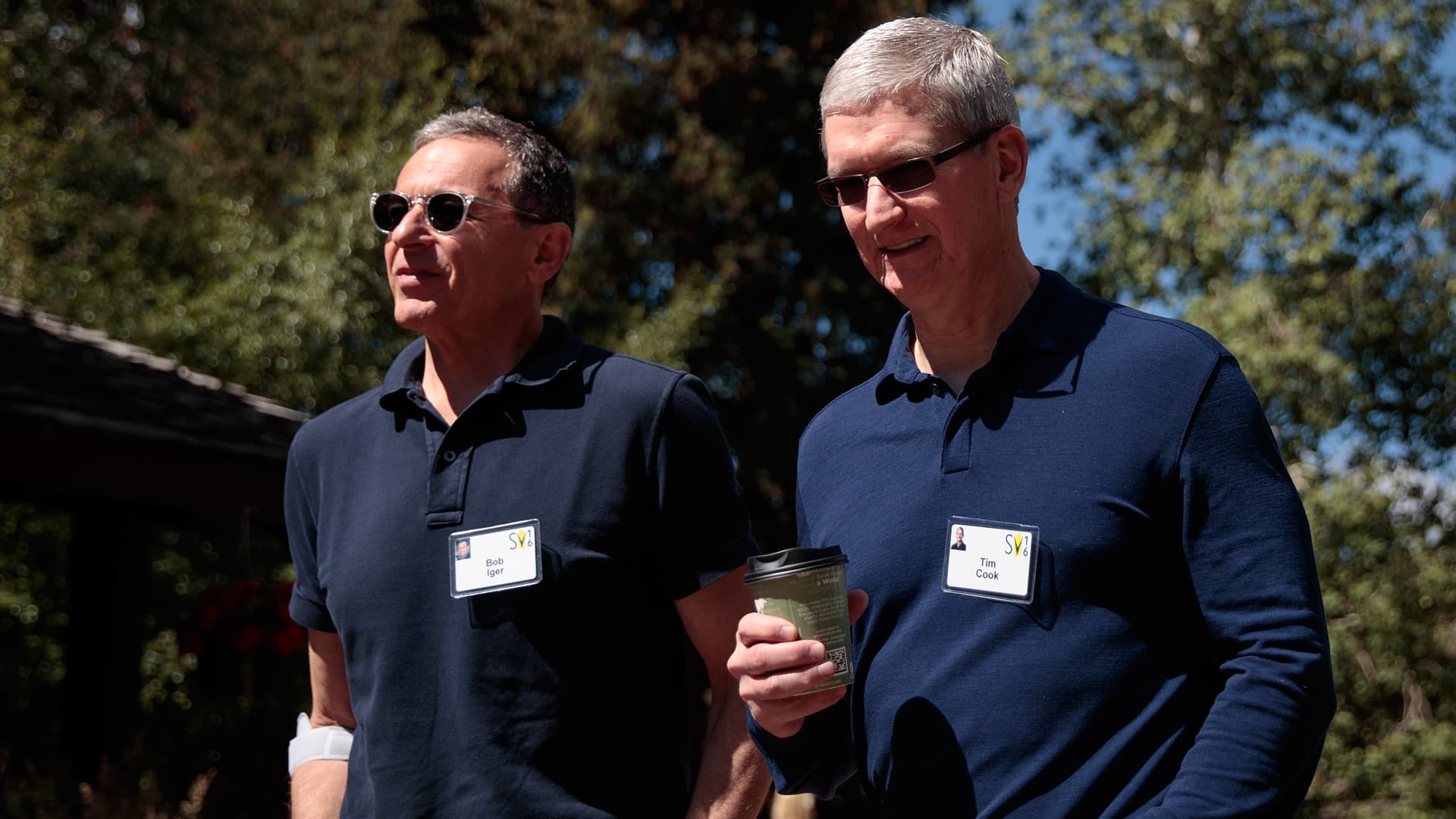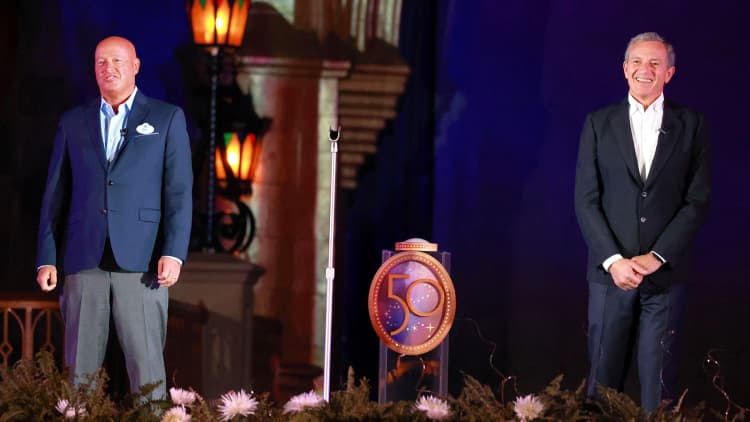

About 10 years ago, I invented a rule about covering mergers and acquisitions that still hasn’t failed me.
Here it is: Will Apple buy [insert company of your choice here]? –> No.
Apple almost never buys name-brand companies. Its largest takeover was 2014’s $3 billion deal for Beats Electronics. Apple is strict about its culture and its focus. While Microsoft has acquired its way to increased scale — buying Activision Blizzard for $69 billion, LinkedIn for $26 billion, Nuance Communications for $20 billion, and five other companies for more than $5 billion — M&A isn’t in Apple’s DNA.
Read more: Iger, Chapek and the making of Disney’s succession mess
For years, analysts and reporters have speculated Apple might want to buy Disney, a company with a market valuation of nearly $150 billion. The ties between the two companies are historically strong. Apple co-founder Steve Jobs became Disney’s largest individual shareholder after Disney acquired Pixar, then owned by Jobs, for $7.4 billion in 2006. The deal also gave Jobs a seat on the Disney board and fostered a close friendship between Jobs and Disney Chief Executive Bob Iger.
Apple’s market capitalization is near $3 trillion. Buying Disney wouldn’t even classify as a bet-the-company transaction.
In his 2019 autobiography, “The Ride of a Lifetime,” Iger acknowledged he believes Disney and Apple may have merged if Jobs, who passed away in 2011, had lived longer.
“I believe that if Steve were still alive, we would have combined our companies, or at least discussed the possibility very seriously,” Iger wrote.
Since his return as CEO in November, Iger has kept Disney’s connection with Jobs alive. A few months ago, many Disney employees came to their offices to find copies of a book, “Make Something Wonderful: Steve Jobs in His Own Words,” on their desks. Iger sent an email to all Disney employees touting the book, describing it as “another tool from Steve — a resource for you, the reader, to spark the creativity that lives inside all of us.”
Selling Disney to Apple could be a storybook ending for Iger, who could argue the best way to transition Disney into a modern media company is to pair up with the most successful technology company in history. Disney’s family-friendly brand may be a fit with Apple, which appeals to consumers around the world.
Still, it’s not clear Apple would have any interest in buying Disney. Beyond its treatment of M&A as anathema, Apple has no core competency running theme parks or selling the kinds of consumer products Disney offers. It almost certainly wouldn’t want to be in the dying cable television business.
While Apple has dabbled in owning sports rights and creating scripted content for Apple TV+, the businesses are so small relative to making and selling devices that they’re essentially non-material to the company. Apple hasn’t bothered to tell investors the number of Apple TV+ subscribers.
On one hand, buying Disney would supercharge those fledging businesses, which could help with Apple device churn while growing subscription revenue.
On the other, if Apple wants to spend more than $100 billion on an acquisition, getting an ESPN business with shrinking subscribers and a content business centered around streaming, which currently loses money, may not be its deal of choice.
Apple could buy Disney to make content for its augmented reality headset, potentially the company’s next major growth division, but that’s probably not enough of a reason to make an acquisition.
Regulatory and culture issues
Even if Apple CEO Tim Cook fell in love with the notion of owning Disney and its associated perks (free Disney World rides for Apple employees! Content synergies for device owners!), it’s ambiguous at best, and unlikely at worst, whether regulators would allow a deal to proceed.
With Lina Khan running the Federal Trade Commission, which has tried to crack down on big tech acquisitions under her watch, the chances of the U.S. government allowing Apple to increase its dominance over the global economy seem minute. Perhaps Apple and Disney could sue to win approval — the businesses don’t have much overlap — but the process would be time-consuming and messy, bringing unneeded uncertainty to both companies.
For the sake of argument, let’s say Apple does want to buy Disney. Let’s say Disney divests or sells its legacy cable assets, ridding itself of no-growth businesses that would weigh on Apple’s earnings. Let’s even say the regulatory environment changes so the U.S. government would be more amenable to a deal.
An agreement would mean Disney’s corporate culture would have to blend with Apple’s culture. The Bob Chapek era at Disney illustrated the strength of Disney’s existing culture and showcased how changing employee attitudes and expectations isn’t easy — even for someone who had spent three decades at the company. Merging the two distinct, well-established cultures seems like a potential recipe for disaster.
The overwhelming evidence on large media mergers — AOL buying Time Warner, AT&T buying Time Warner, CBS and Viacom merging, Discovery and WarnerMedia merging — is immense value destruction.
So, could Apple one day buy Disney? Sure. But I’m in no rush to alter my M&A cardinal rule.





